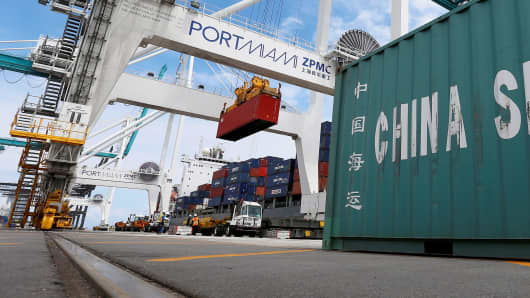
World trade is weakening to its slowest pace since 2009 amid a groundswell of anti-globalization sentiment, a watchdog warned Tuesday.
The World Trade Organization predicted Tuesday that global trade will rise only 1.7 percent this year, down from its April prediction for 2.8 percent. Trade in 2017 is now expected to rise between 1.8 percent and 3.1 percent, down from 3.6 percent anticipated previously.
“The dramatic slowing of trade growth is serious and should serve as a wake-up call,” WTO director-general Robert Azevedo said. “It is particularly concerning in the context of growing anti-globalization sentiment.”
“We need to make sure that this does not translate into misguided policies that could make the situation much worse,” in terms of job creation and economic growth, he added.
The Geneva-based body, perhaps best known for dealing with trade disputes, says the downgrade follows an unexpectedly sharp drop in merchandise trade volumes in the first quarter.
The WTO also cited slowing economic growth and trade in developing countries like China and Brazil as well as a deceleration in imports growth in North America from that of the last two years.
The new forecast came as WTO opened a three-day public forum that started with discussions about ways to make trade more inclusive, and a debate about helping small- and medium-sized enterprises to take part in the global market.
WTO said uncertainties loom over its forecast for the rest of 2016, including the effect of the British vote, financial volatility due to changes in monetary policy in developed countries, and growing anti-trade rhetoric that could affect state policies.
In the U.S. presidential debate on Monday with Hillary Clinton, Donald Trump said “we have to renegotiate our trade deals and we have to stop these countries from stealing our companies and our jobs.”
Clinton cited the need for “smart fair trade deals,” adding that the United States has “5 percent of the world’s population. We have to trade with the other 95 percent.”
source”gsmarena”



